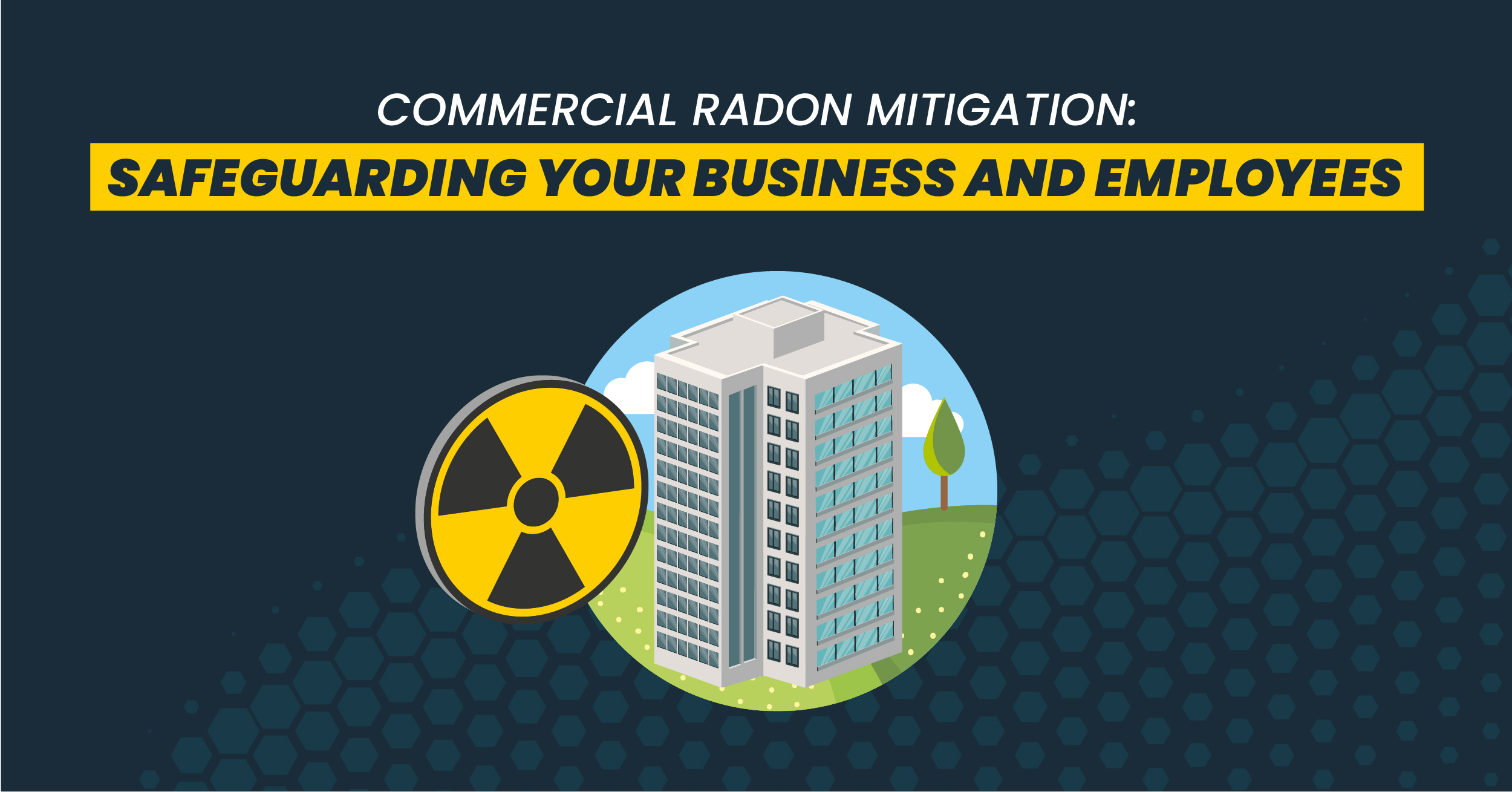Seeking a comprehensive guide to shield your business against the escalating threat of cybercrime? Look no further than our "Ultimate Guide to Safeguarding Your Business from Cybercrime," meticulously crafted to empower you with actionable strategies to thwart malicious actors.

Commercial Radon Mitigation: Safeguarding Your Business and Employees - Source alphaenvironmental.net
Editor's Notes: The significance of safeguarding your business from cyberattacks cannot be overstated. Cybercriminals relentlessly target businesses of all sizes, exploiting vulnerabilities to compromise data, disrupt operations, and inflict financial losses.
Through extensive analysis and research, our team of experts has compiled this comprehensive guide, providing you with an arsenal of practical measures to mitigate risks, safeguard your assets, and ensure the continuity of your business operations.
Key Differences:
| Aspect | "Ultimate Guide to Safeguarding Your Business from Cybercrime" | Other Resources |
|---|---|---|
| Scope | Comprehensive guide covering all aspects of cyber security for businesses | May focus on specific threats or narrow topics |
| Actionability | Provides actionable steps and best practices to implement immediately | Often more theoretical or less practical |
| Expertise | Authored by industry experts with deep understanding of cyber threats | May lack the same level of expertise or insights |
Main Article Topics:
FAQ
This section addresses frequently asked questions to provide comprehensive guidance on safeguarding businesses against cybercrime.
Question 1: What are the most common types of cyberattacks?
Cybercriminals employ various attack methods, including malware, phishing, ransomware, and denial-of-service attacks.
Question 2: How can I minimize the risk of a cyberattack?
Implementing robust cybersecurity measures, such as firewalls, antivirus software, and employee training, is crucial for reducing vulnerabilities.
Question 3: What should I do if my business is the victim of a cyberattack?
Promptly report the incident to authorities, contain the breach, and seek professional assistance to mitigate damage and restore operations.
Question 4: Are small businesses vulnerable to cyberattacks?
All businesses, regardless of size, are potential targets. Comprehensive cybersecurity measures are essential to protect valuable data and critical infrastructure.
Question 5: How can I stay up-to-date on the latest cybersecurity threats?
Monitor reputable security blogs, participate in industry forums, and regularly review security patches and updates to enhance protection.
Tips
In the face of evolving cyber threats, businesses must implement robust measures to safeguard their operations from malicious actors. By adhering to these tips, organizations can significantly reduce their vulnerability to cybercrime.
Tip 1: Implement Strong Password Protocols
Enforce complex passwords with a minimum length, character diversity, and regular expiration. Implement multi-factor authentication to add an extra layer of security.
Tip 2: Regularly Update Software
Software updates often patch security vulnerabilities. Promptly install updates for operating systems, applications, and firmware to minimize the risk of exploitation.
Tip 3: Use a Comprehensive Firewall
A firewall acts as a barrier between your network and the internet, monitoring incoming and outgoing traffic. Choose a firewall with advanced features like intrusion detection and prevention.
Tip 4: Train Employees on Cybersecurity
Educate employees on common cyber threats and proper security practices. Encourage them to report any suspicious activity or potential breaches immediately.
Tip 5: Regularly Back Up Data
Implement a reliable backup strategy to protect critical data from loss due to cyberattacks or hardware failures. Consider using cloud storage for secure and off-site backups.
Tip 6: Implement Network Segmentation
Divide the network into different segments based on trust levels and access requirements. This limits the potential impact of a breach by isolating compromised systems from critical assets.
Tip 7: Monitor Network Activity
Use security monitoring tools to detect unusual network activity, such as unauthorized access attempts or malware infections. Set up alerts to notify administrators of any suspicious behavior.
Tip 8: Consider Cyber Insurance
Cyber insurance provides financial protection against the costs associated with cyber incidents, including data breaches, ransomware attacks, and business interruption. Explore policies that align with your organization's specific needs.
For a comprehensive guide on protecting your business from cybercrime, refer to Ultimate Guide To Safeguarding Your Business From Cybercrime.
Ultimate Guide To Safeguarding Your Business From Cybercrime
As the digital landscape evolves, cybercrime poses an increasing threat to businesses. To safeguard your operations, it is crucial to implement robust measures encompassing a comprehensive understanding of the following key aspects:
- Employee Education: Empowering staff with cybersecurity awareness.
- Strong Passwords: Enforcing complex and unique passwords across the organization.
- Multi-Factor Authentication: Adding an extra layer of security by requiring multiple forms of authentication.
- Data Encryption: Protecting sensitive information from unauthorized access.
- Regular Software Updates: Patching vulnerabilities and addressing security flaws.
- Cybersecurity Insurance: Supplementing proactive measures with financial protection against cyber incidents.
By addressing these essential aspects, businesses can fortify their cybersecurity posture. Employee education fosters a vigilant workforce, while strong passwords and multi-factor authentication hinder unauthorized access. Encryption safeguards sensitive data, software updates eliminate potential vulnerabilities, and cybersecurity insurance provides financial resilience. A comprehensive approach encompassing these measures is vital for businesses to safeguard their operations from the evolving threats of cybercrime.

Essential Role of Backup Solutions with Barracuda | Kappa Data - Source www.kappadata.be
Ultimate Guide To Safeguarding Your Business From Cybercrime
The surge in cybercrime poses significant threats to businesses, necessitating robust safeguards. Cybercriminals target businesses of all sizes, exploiting vulnerabilities in security systems to steal sensitive data, disrupt operations, and damage reputation. This comprehensive guide provides essential strategies for businesses to safeguard against cyberattacks, protecting their assets and ensuring business continuity.

Safeguarding Business Kingdoms through Identity Management - Velocity - Source velocity-technology.com
Organizations must prioritize cybersecurity measures, adopting best practices and implementing cutting-edge technologies to mitigate risks. Regular security audits, employee training, and incident response plans are vital components of an effective cybersecurity strategy. By understanding the tactics and motives of cybercriminals, businesses can proactively address vulnerabilities and respond swiftly to potential breaches. This guide serves as an invaluable resource for businesses seeking to navigate the evolving landscape of cyber threats, ensuring their resilience and growth in the digital age.
Businesses that fail to prioritize cybersecurity risk severe consequences. Data breaches can result in financial losses, reputational damage, and regulatory fines. Disruptions to operations can lead to lost productivity, revenue, and customer trust. By neglecting cybersecurity measures, businesses expose themselves to these risks, potentially jeopardizing their long-term viability. Conversely, proactive investment in cybersecurity safeguards not only protects against threats but also strengthens business resilience and enhances stakeholder confidence.
Real-life examples of successful cyberattacks underscore the urgency of implementing effective safeguards. In 2021, the Colonial Pipeline ransomware attack disrupted fuel supply across the United States, causing widespread economic losses. Similarly, the Equifax data breach in 2017 compromised the personal information of millions of individuals, resulting in significant financial and reputational damage to the company. These incidents highlight the devastating impact of cybercrime and the need for businesses to take proactive measures to protect themselves.
Conclusion
Cybersecurity is paramount for businesses to ensure their survival and success in the digital age. The Ultimate Guide To Safeguarding Your Business From Cybercrime provides a roadmap for organizations to navigate the ever-changing threat landscape. By understanding the importance of cybersecurity, adopting best practices, and implementing robust safeguards, businesses can protect their assets, mitigate risks, and maintain their competitive edge in the face of cyber threats.
As technology continues to advance, so too will the sophistication of cyberattacks. Businesses must remain vigilant, constantly adapting their cybersecurity strategies to stay ahead of evolving threats. By investing in cybersecurity initiatives and fostering a culture of security awareness, businesses can create a resilient and secure environment that supports their growth and success.